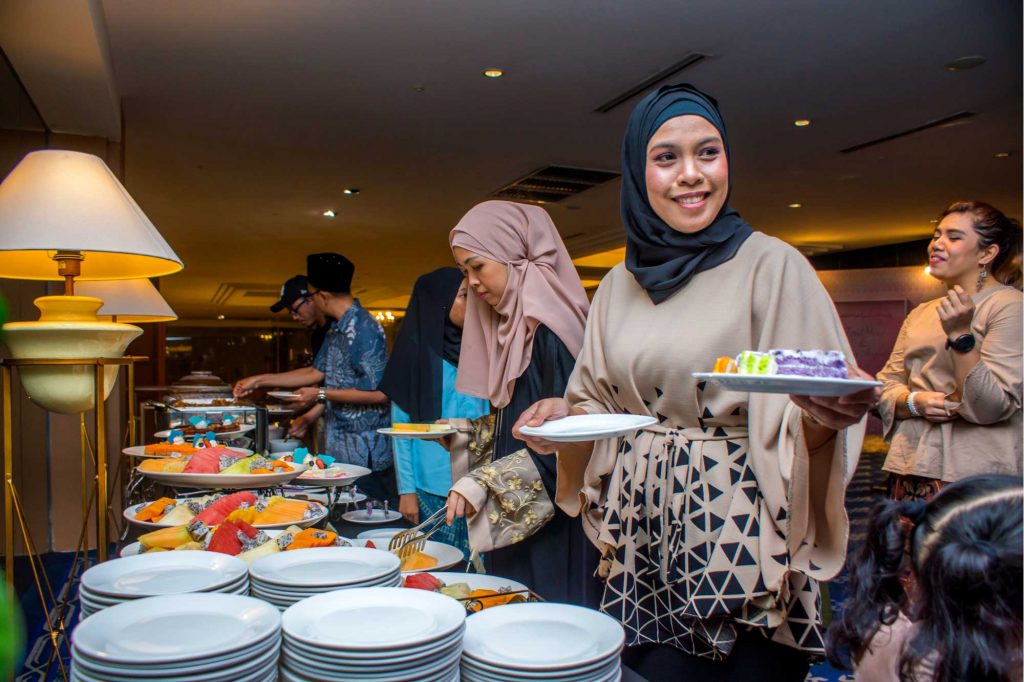Stress is the opposite of peace. Our Salam Mindfulness Series aims to help Muslims learn proven techniques to reduce immense stress and anxiety brought on by our modern, fast-paced lifestyles.
Enjoy exploring these mindfulness practices to have better mental, physical and emotional well-being. Peace be upon you.
When stressed, sad, bored, or anxious, do you find yourself heading to the kitchen in search of something to eat? When you’ve had a hard day, do you tend to comfort yourself with cookies, chips, or other low-nutrient foods?
If the answer is yes, you are possibly among the reported 49% of people who experience emotional eating. Emotional Eating is marked by consuming unhealthy foods or overeating because of stress.
I am a recovering emotional eater. For years I coped with the many stresses of life by eating foods that tasted good, even though I knew they were not good for me.
I gained weight gradually over thirteen years. Starting with the birth of my first child, and continuing over the course of four more pregnancies, I gained. Not all women retain the extra pounds gained during pregnancy.
However, according to an article in Live Science, “One in 4 women will hang onto 11 pounds or more a year after giving birth. And after having a baby, a woman will be, on average, 2.5 to 5 pounds heavier than she was prior to pregnancy. . .
While that’s not a ton, imagine repeating that process for four or five babies; after that, the extra weight gain can be significant.”
A Bright Line of Hope
So, motherhood definitely had something to do with my predicament, but it was not the only culprit. I knew that I had an unhealthy relationship with food and that my excess weight was detrimental to my health.
Still, I had trouble sticking with my resolutions. I would be determined to start eating more responsibly, but then the cravings would overpower me. Just when I was ready to despair, a dear friend told me about the book that changed her life. Bright Line Eating by Susan Peirce Thompson, PhD, would eventually change my life, too
Unlike a weight loss fad or gimmick, Bright Line Eating (BLE) is based on the proven science of addiction. Thompson explains how sugar and flour are extremely addictive, especially to susceptible individuals.
Until our brains are free from reliance on those substances, Thompson asserts, we will not be happy, thin, or free. Bright Line Eating is a must-read for anyone who can identify with overindulgence, emotional eating, or a lifetime of yo-yo dieting.
In addition to eliminating flour and sugar, the BLE method incorporates various kinds of mindfulness.
What is mindfulness? According to Jan Chozen Bays, MD, “It is deliberately paying attention, being fully aware of what is happening both inside and outside yourself – in your body, heart and mind – and outside yourself, in your environment. Mindfulness is awareness without criticism or judgement.”

How My Mindful Eating Works
Following BLE, I regularly incorporate these kinds of mindfulness in my wellness journey:
Journaling
As Thompson suggests, I write down all components of my meals in advance, to take away “wiggle room” in my decision-making that might make me tempted to overeat or indulge in the wrong foods.
I also keep a gratitude journal that helps me maintain a positive mindset. Finally, I write my feelings down if I’m feeling upset or anxious. Instead of grabbing a cookie, I pick up a pen and paper and cope with my emotions in a healthier way.
Meditation and/or prayer
BLE encourages using meditation to relax and overcome stress. As a Muslim, I already have my five daily prayers to help me find tranquility and to remember my ultimate purpose.
I also frequently make dua’ for help in my wellness journey, knowing my body is an amanah from my Creator and that my health-conscious efforts are an act of worship. I am learning to use meditation, too, to cope with stressors.
Identifying my emotions
Several times throughout the day, I am tempted to eat for emotional reasons. In the past I would have given into temptation without a second thought. Nowadays, I stop myself and ponder why I am tempted to eat. Am I bored? Worried? Sad?
Once I have identified my emotion, I gently tell myself that food will not solve that problem; it is supposed to be fuel, not comfort. Then I distract myself with prayer, meditation, or a soothing activity until the urge to eat passes.
Mindful eating
Dr. Bays explains how this technique “helps us learn to hear what our body is telling us about hunger and satisfaction. It helps us become aware of who in the body/heart/mind complex is hungry, and how and what is best to nourish it.”
When I am mindful of my food, I appreciate it more. I savor the vibrant flavors of fruits and vegetables and I am more aware that my hunger is subsiding.
Nowadays saying “Bismillah” before eating has even greater meaning for me. I am more cognizant than ever that nourishing, wholesome food is an enormous blessing, and I am grateful to Allah SWT for helping me to recover from my unhealthy relationship with food.
Links to helpful further reading:
Emotional Eating: What you should know



